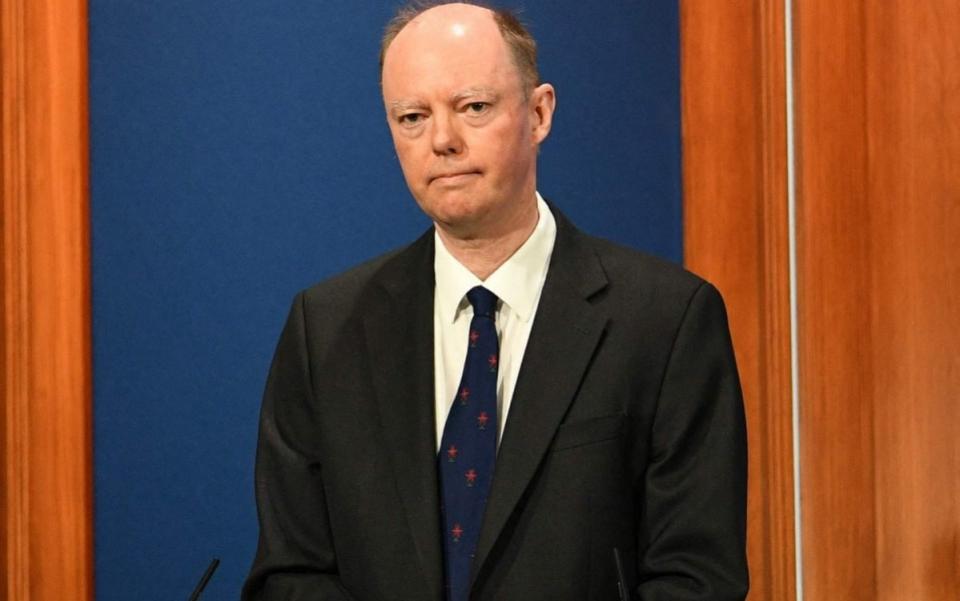AstraZeneca vaccine linked to blood clots, EMA official says


A senior official at the European Medicines Agency (EMA) has said there is a link between the AstraZeneca vaccine and blood clots.
Marco Cavaleri, the head of vaccines at the EMA, told an Italian newspaper that an association was now "clear", but added that experts were still unsure what was causing the clotting.
Last month, two teams of medical researchers in Norway and Germany said they had independently found that the vaccine could trigger an autoimmune reaction causing blood to clot in the brain. The EMA is expected to make a formal announcement later on Tuesday.
Britain's Medicines Healthcare and Regulatory Agency (MHRA) is still investigating seven deaths and 30 cases of clotting in people who had recently had the AstraZeneca jab.
On Monday night, Channel 4 News reported that the MHRA is considering banning the jab in younger people, with a decision expected this week. Prof Chris Whitty, the chief medical officer, last week said it may get to a point where the benefits of the jab no longer outweigh the risks for younger people.

Speaking to Italy's Il Messaggero newspaper, Mr Cavaleri said: "In my opinion, we can say it now, it is clear there is a link with the vaccine. But we still do not know what causes this reaction. We are trying to get a precise picture of what is happening, to define in detail this syndrome due to the vaccine.
"Among the vaccinated, there are more cases of cerebral thrombosis... among young people than we would expect."
He added that "in the next few hours, we will say that there is a connection, but we still have to understand how this happens".
Pierpaolo Sileri, the Italian deputy minister of health, told an Italian radio station it was possible that the EMA would recommend that certain categories of people should not be given the jab "for greater precaution", but stressed that "this also happened for many other drugs".
Several European countries, including France and Germany, have now suspended the use of the AstraZeneca jab in younger people, although the EMA has consistently said that the benefits far outweigh the risks.
So far in Britain there have been 18.1 million doses of the AstraZeneca jab given and 22 events of cerebral venous sinus thrombosis (CVST) – a risk of one in 820,000.

CVST occurs when a blood clot forms in the brain's venous sinuses. This prevents blood from draining out of the brain and can lead to headache, blurred vision, loss of consciousness, seizures, coma and death. There have also been eight other clotting events and seven deaths recorded in Britain.
The figures are far lower than the number of clots that would normally be expected in a large population. According to the charity Thrombosis UK, up to one in 1,000 people each year will experience a blood clot. That means about 66,000 people in Britain might be expected to suffer a blood clot annually – or 1,269 a week – far higher than the numbers being reported from vaccinations.
The National Institute for Health and Care Excellence (Nice) estimates that the risk of a blood clot is even higher – around one in 500 – meaning that double the number of cases would be expected.
However, the risk of developing CVST is unknown in a large population because it is such a rare event, and the EMA is concerned because the risk to younger people is higher than would be expected.
None of the regulators has so far released a breakdown of the ages of those affected by clotting, so the risk for each age group is currently unknown. However, many countries in Europe initially only permitted the AstraZeneca vaccine to be used in the under-60s, so most cases are likely to be in younger age groups.
On Tuesday, the MHRA said the benefits of the vaccine in preventing coronavirus continued to outweigh any risks and urged people to continue to get their jab when invited to do so.
"No decision has yet been made on any regulatory action," said Dr June Raine, the chief executive. "People should continue to get their vaccine when invited to do so. Our thorough and detailed review is ongoing into reports of very rare and specific types of blood clots with low platelets following the Covid-19 vaccine AstraZeneca."

 Yahoo News
Yahoo News 
